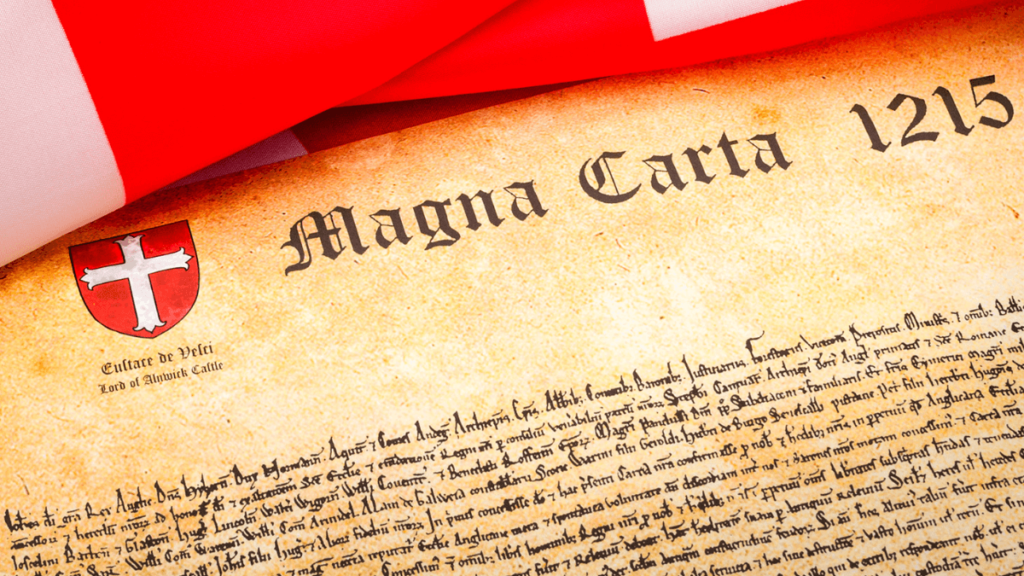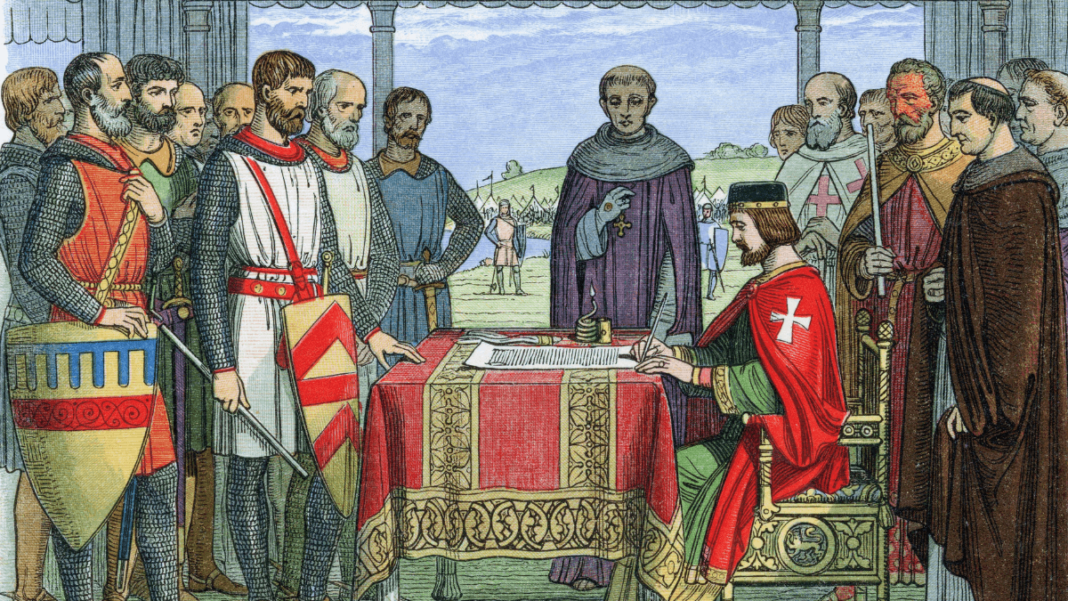What Is the Magna Carta and Why It Still Matters in Today’s World
The Magna Carta, also known as the “Great Charter,” is one of the most important documents in history. It was signed by King John of England on June 15, 1215, and changed the course of English and world history. Many people see it as the foundation of modern democracy, legal systems, and individual rights. But what was the Magna Carta, and why was it so significant?
In this article, we’ll explore the background of the Magna Carta, what it actually said, and how it shaped the future.

The Background: Why Was the Magna Carta Created?
To understand why the Magna Carta was created, we need to look at the reign of King John. He ruled from 1199 to 1216, and his reign was marked by many problems. King John was known for being a weak and often cruel ruler. He lost large parts of his kingdom in France, taxed his people heavily, and had ongoing conflicts with the church and his own nobles.
One of the main reasons for the Magna Carta was King John’s constant demand for money. He imposed high taxes on the barons (the noblemen of the time) and used unfair methods to collect them. This created anger and resentment among the barons, who felt that the king was abusing his power. On top of that, King John lost battles against the French, leading to the loss of lands that belonged to the English crown. This made him even more unpopular.
In response to his unpopular rule, a group of rebel barons banded together. They demanded that the king respect their rights and put limits on his power. After months of tensions, King John met with these barons at a place called Runnymede, where they forced him to sign the Magna Carta.
What Was in the Magna Carta?
The Magna Carta was essentially a list of promises made by King John to the barons. It included 63 clauses that outlined the rights of the people and the responsibilities of the king. Some of these clauses dealt with specific issues that were important at the time, but many had a lasting impact on history.
Here are some of the key points in the Magna Carta:
- Limitation of the King’s Power: One of the main themes of the Magna Carta was that the king’s power should not be absolute. It established that the king had to follow the law, just like everyone else. This was a revolutionary idea at the time. Before this, kings often ruled as if they were above the law.
- Protection of Rights and Liberties: The Magna Carta guaranteed certain basic rights to the people, especially the barons. It protected the right to a fair trial and ensured that no one could be imprisoned or punished without due process.
- No Unfair Taxes: The document stated that the king could not raise taxes without the consent of his council of barons. This was one of the main concerns of the barons, who felt that they were being unfairly taxed without having any say in the matter.
- Church Freedoms: The Magna Carta also protected the rights of the Church and ensured its freedom from interference by the king. At the time, King John had been in conflict with the Pope, and this was a way to ease those tensions.
- Justice System Reforms: The Magna Carta addressed issues within the justice system, making sure that the courts were accessible and fair. It aimed to reduce corruption and ensure that justice could not be bought or sold.
Why Was the Magna Carta Important?
When King John signed the Magna Carta in 1215, he did not intend for it to be a lasting document. In fact, he asked the Pope to annul it, which he did shortly after. However, the Magna Carta’s legacy endured.
Here are some of the reasons why the Magna Carta is still considered significant:
- The Foundation of Modern Law: The Magna Carta laid the groundwork for the rule of law. It inspired later legal documents, including the English Bill of Rights and the United States Constitution. The idea that no one, not even the king, is above the law became central to modern legal systems.
- Individual Rights: The Magna Carta introduced the idea that individuals have rights that the government must respect. Concepts like the right to a fair trial, due process, and protection from unlawful imprisonment have roots in the Magna Carta.
- Inspiration for Future Democracies: Many democratic movements and revolutions have drawn inspiration from the Magna Carta. For example, the American colonists who fought for independence from Britain used the ideas in the Magna Carta to argue for their own rights and liberties.
- Symbol of Freedom and Justice: Over time, the Magna Carta became more than just a legal document. It became a symbol of freedom and justice, especially during times of political struggle. People have used the Magna Carta as a rallying point for their own rights, and it continues to be a symbol of the fight against tyranny.
The Long-Term Impact of the Magna Carta
Although the original Magna Carta was annulled, its principles lived on. Over the centuries, it was reissued and revised several times. By the 17th century, it had become a key part of English law.
The Magna Carta’s ideas spread beyond England. In the 18th century, it heavily influenced the founding fathers of the United States. The U.S. Constitution and the Bill of Rights, which protect freedoms like speech and religion, owe much to the Magna Carta. In fact, the fifth amendment, which ensures that no person can be deprived of life, liberty, or property without due process, can be traced back to this medieval document.
Even today, the Magna Carta’s legacy can be seen in legal systems around the world. It has shaped the development of constitutional law in many countries, particularly those that follow a common law system.
10 Most Common Questions and Answers About the Magna Carta

1. What is the Magna Carta?
The Magna Carta, or “Great Charter,” is a historic document from 1215 that established certain legal rights. It was agreed upon by King John of England and a group of rebellious barons. They wanted to limit the king’s power because they believed he was treating them unfairly. Though it was originally meant to solve a political crisis, it became a symbol of liberty and justice over time.
2. Why was the Magna Carta created?
The Magna Carta was created because King John was seen as a cruel and greedy ruler. He raised taxes, lost important wars, and punished people unfairly. The barons, wealthy landowners, were fed up with his behavior. They rebelled and forced him to agree to a set of rules that would limit his power. The document was designed to protect their rights and prevent the king from abusing his authority.
3. What are the key principles of the Magna Carta?
The Magna Carta introduced several important ideas that have influenced law for centuries. The most famous principles include:
- No one is above the law, not even the king.
- People have the right to a fair trial if accused of a crime.
- Taxes should not be raised without consent from the people (or their representatives). These principles helped shape the idea that government should be accountable to its citizens.
4. Did the Magna Carta give everyone rights?
No, the Magna Carta mainly applied to the barons and other wealthy people at first. The common people, like peasants, didn’t benefit much from it in 1215. Over time, though, its ideas were expanded to apply to more people. In the centuries that followed, the Magna Carta became an important symbol for those who fought for broader rights and freedoms.
5. Is the Magna Carta still legally important today?
Most of the Magna Carta’s original clauses are no longer part of modern law. However, three key clauses are still part of British law today, including the right to a fair trial. More importantly, the Magna Carta’s legacy has been its influence on constitutional law and human rights. Many countries, including the United States, have laws that were inspired by its principles of justice and freedom.
6. How did the Magna Carta influence the U.S. Constitution?
The Magna Carta was a big influence on the U.S. Constitution and the Bill of Rights. When the American colonists fought for independence, they wanted a government that respected individual rights. The Magna Carta’s ideas about limiting government power, protecting liberty, and ensuring fair trials helped shape the legal framework of the U.S. Constitution. Its principles were used to justify breaking away from British rule.
7. What was King John’s role in the Magna Carta?
King John didn’t really want to sign the Magna Carta. He was forced into it after losing the support of the barons, who were tired of his harsh rule. The barons captured London and threatened a full rebellion, so John agreed to negotiate. He signed the Magna Carta at Runnymede in 1215, but he soon tried to ignore its rules. This led to more conflict, and John died a year later in 1216.
8. Why is the Magna Carta often seen as the start of democracy?
The Magna Carta is not exactly the start of democracy, but it laid the groundwork for it. Before the Magna Carta, kings had almost total power. By forcing King John to agree to some limits on his authority, the barons set the idea that rulers should have checks on their power. Over time, this helped develop the idea of parliamentary government, where leaders are accountable to elected representatives.
9. Where is the Magna Carta kept today?
There are four surviving original copies of the 1215 Magna Carta. Two are kept at the British Library in London, one is at Lincoln Cathedral, and the other is at Salisbury Cathedral. These documents are carefully preserved because they are considered national treasures. Sometimes, they are loaned to other museums for special exhibitions.
10. What does Magna Carta mean for modern human rights?
The Magna Carta is seen as an early step toward modern human rights. It established the idea that no one, not even a king, is above the law. It also introduced the right to a fair trial, which is an important part of legal systems worldwide today. Though the document is over 800 years old, its ideas about justice, freedom, and limiting the power of rulers continue to inspire human rights movements.
The Magna Carta’s historical significance lies in how its principles shaped the development of laws and government systems that protect individual freedoms and promote fairness.

Conclusion – Why Does the Magna Carta Still Matter?
The Magna Carta was more than just a peace agreement between King John and his barons. It was a revolutionary document that changed how people thought about government, law, and individual rights. Its key principles – the rule of law, protection of individual rights, and limits on government power – continue to influence modern democracies.
While the Magna Carta was created in a specific historical context, its ideas have lasted for centuries. Today, it remains a powerful symbol of the fight for freedom and justice.
In short, the Magna Carta was the beginning of a long journey toward the legal and political freedoms that many people enjoy today. It’s a reminder that even in the face of tyranny, the principles of justice and fairness can prevail.
We may also earn a commission from affiliate links on this page too. Thank you.



